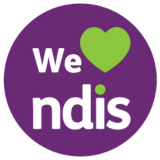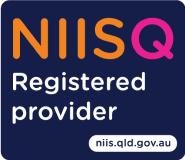Disability Royal Commission final report – a summary
The Disability Royal Commission released its final report, a significant milestone in acknowledging and giving voice to the issues faced by people with disability in Australia.
This report sheds light on the profound challenges and injustices experienced by people with disability, offering a comprehensive overview of the findings and recommendations, making 222 recommendations about what changes are needed.
While the Australian Federal Government and State and Territory governments consider the recommendations from the Disability Royal Commission and respond to these recommendations, Nextt remains fully committed to supporting people with disability to make real and informed choices about how they receive supports from us.
Why is the Disability Royal Commission Report important to Nextt?
Nextt is dedicated to creating a more inclusive society where the rights of people with disabilities are respected, protected, and fulfilled, ensuring their inherent dignity and individual autonomy. Nextt welcomes a streamlined and improved approach to disability policy and governance in Australia, which we hope will lead to more effective policy development and delivery at all levels of government.
We believe that people with disabilities should have the autonomy to co-design their support options and make informed choices based on real choices. We support a greater range and more flexibility in how support can be used to better meet the unique needs and aspirations of people with disability.
The responsibility for building an inclusive society is shared by the entire Australian community. It cannot occur without fundamental changes in community attitudes and behaviours towards people with disability. Advocacy by people with disability and disability representative organisations will play a crucial role in ensuring the recommendations are accepted and effectively implemented. However bringing about the far-reaching changes in laws, policies, and practices so badly needed, will require a whole of government, whole of community and whole of Australia approach.
Key findings and recommendations
Following is a summary of the key findings and recommendations from the Disability Royal Commission’s final report and our perspective on the path forward. Please note that this summary includes mention of abuse, violence, neglect and exploitation.
Violence, abuse, neglect, and exploitation
People with disability, especially women, face significantly higher rates of violence, abuse, neglect, and exploitation. This includes severe deprivation, sexual and financial exploitation, and denial of basic necessities and assistance with daily activities.
Key recommendations:
- Introduce an Australian Disability Rights Act to strengthen the protection of the rights of people with disabilities.
- Amend existing legislation to promote equality and enhance the right of people with disabilities to live free from discrimination.
Barriers to access and inclusion
People with disability often encounter barriers to access and inclusion across various sectors, including healthcare, education, employment, and housing. These barriers limit their opportunities to develop personal relationships, participate in the community, and build life skills.
Key recommendations:
- Promote supported decision-making and reduce restrictive practices.
- Ensure disability advocacy is accessible, culturally safe, and well-resourced.
- Improve access to skilled interpreters for people with disabilities.
- Enhance access to quality healthcare for people with cognitive disabilities.
Autonomy and access denied
Autonomy, the right to make decisions, and access to services are frequently denied to people with disability. They are disproportionately subjected to substitute decision-making and restrictive practices. Laws should be reformed to promote supported decision-making and prohibit non-therapeutic sterilisation.
Key recommendations:
- Clarify the responsibilities of the National Disability Insurance Scheme (NDIS) and the criminal justice system to provide appropriate supports for people with disabilities.
- Improve screening for and identification of disabilities in criminal justice settings.
- Establish alternative reporting pathways and approaches for victims of crimes who have disabilities.
- Reform laws to prohibit the non-therapeutic sterilisation of people with disabilities.
Inclusive education, employment, and housing
Mainstream systems need significant reform to remove barriers for people with disability in accessing quality education, employment, and housing. This reform should enable meaningful inclusion in society. Key recommendations:
- Significantly reform mainstream systems to remove barriers for people with disabilities in accessing quality education, employment, and housing.
- Increase housing accessibility and security.
- Improve responses to chronic homelessness for people with disabilities.
Criminal justice system overrepresentation
People with disability, especially those with cognitive disabilities, are significantly overrepresented in the criminal justice system. This includes children with disability in youth detention and the risk of indefinite detention for forensic patients with cognitive disability.
First Nations people with disability
First Nations people with disability face unique challenges, including a lack of culturally-safe disability services and barriers to accessing the NDIS in remote areas. Reforms are needed to remove these barriers and address overrepresentation in the child protection and criminal justice systems.
Key recommendations:
- Address the lack of culturally-safe disability services and supports for First Nations people with disabilities.
- Remove barriers to accessing the NDIS in remote areas.
- Address the over-representation of First Nations people with disabilities in the child protection and criminal justice systems.
Quality and safeguards in disability services
Violence, abuse, neglect, and exploitation are prevalent in disability services, particularly supported accommodation. Robust policies, procedures, screening, recruitment, training, and supervision of disability support workers are crucial.
Key recommendations:
- Implement robust and transparent policies and procedures for disability service providers to detect and respond to violence, abuse, neglect, and exploitation.
- Enhance screening and recruitment processes for disability support workers.
- Strengthen the regulation and oversight of NDIS-funded disability services by the NDIS Quality and Safeguards Commission.
Independent oversight and complaint mechanisms
Additional independent oversight mechanisms and pathways for complaints are needed to address violence and abuse across various settings. Adult safeguarding laws, community visitor schemes, and an independent one-stop shop for reporting complaints are recommended.
Key recommendations:
- Establish adult safeguarding laws, community visitor schemes, and an independent one-stop shop for reporting complaints and referrals in all states and territories.
- Introduce schemes to review the deaths of people with disabilities in every state and territory.
- Implement nationally consistent reportable conduct schemes.
- Take a disability-inclusive approach to implementing the Optional Protocol to the Convention against Torture and Other Cruel, Inhuman or Degrading Treatment or Punishment (OPCAT).
Strengthening governance and measuring change
Wide-ranging changes to disability policy and reforms are required, including the establishment of a new Australian Government portfolio specifically responsible for disability and a National Disability Commission as an independent statutory authority. High-quality data and research are vital for measuring the effectiveness of these policies.
Key recommendations:
- Create a new Australian Government portfolio specifically responsible for disability.
- Establish a new National Disability Commission as an independent statutory authority.
- Develop high-quality data and research for measuring the effectiveness of disability policies.
In summary
Nextt remains committed to working collaboratively with people with disability, the people who support them with decisions, families, and the broader community to support the vision of an inclusive Australia where people with disabilities live free from violence, abuse, neglect, and exploitation, and where their rights and dignity are upheld.
Nextt CEO Jennifer Morgan said: “What’s clear from this report is that people with disability are not asking for more rights, they are asking for the same rights, and we need to not just listen—we all need to act.”
“Human rights are inherent to human dignity and no one should be put in a position where they have to ask for them to be respected and fulfilled.”
At Nextt, in line with our values we will continue to be:
- Committed: We will work with you to uphold your rights and provide the best service possible
- Creative: We will seek better ways of doing things so that our services can continuously improve
- Principled: We act with integrity, respect and value you as an individual and will always try to do the right thing
- Responsive: We will listen to you so you can achieve your goals and maximise your opportunities and outcomes
Category
Ideas & Insight
Read time
7 minutes
Publish Date
October 11, 2023




